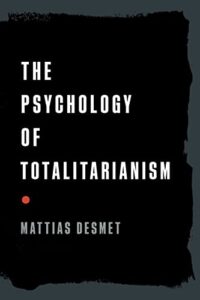
The Intolerant Friend: A Former Friend’s Intolerance

The reason for this post is to give a reflection on the divisiveness that the last several years have wrought over differing viewpoints on politics and COVID-19. People have shunned friends and family members over disagreements. Below, I have pasted an email correspondence from August 2022 that I had with a friend of over twenty years. He opted out of attending a rock concert with me and other friends because of my posts on politics and COVID-19. (I have not named him to respect his privacy.)
But before you, the reader, read the correspondence, please consider my brief reflection that can put into context the reason for some people’s intolerance when it comes to differing points of view.
Contextualizing Intolerance
The effects of mind-control strategies used by governments and the media are well documented by conformity experiments conducted by social psychologist Solomon Asch and, more recently, neuroscientist Gregory Bern in 2005.
This video below demonstrates several variations of the Asch conformity experiments.
Most recently, going a few steps further, psychologist Mattias Desmet, professor of clinical psychology at Ghent University, has argued that the reason for this intolerant behaviour can be found in what he has dubbed “mass formation psychosis.”

Mass Formation Psychosis
Niccolò Machiavelli, in his novel The Prince, wrote the following: “And since there are three kinds of brains: one that understands by itself, another that discerns what others understand, the third that understands neither by itself nor through others.”

It is similar to what Desmet, who has studied the psychology of totalitarianism, argues in his recent book, The Psychology of Totalitarianism:
Mass formation, as a form of hypnosis, is a phenomenon where individuals are in the grip of the resonance of a voice—the voice of the leader of the crowd. However, not all of the population falls prey to this process… [there are] three groups that form when a mass rises: the masses themselves, who truly go along with the story and are “hypnotized” (usually about 30 percent); a group that is not hypnotized but chooses to not go against the grain (usually about 40 to 60 percent); a group that is not hypnotized and actively resists the masses (ranging from 10 to 30 percent).
A key to understanding Desmet’s mass formation is that “totalitarianism arises from evolutions and tendencies that take place in our day-to-day lives” and is not focused on the typical understanding associated with totalitarianism, such as concentration camps, for instance. In addition, according to Desmet, in the case of COVID, the crisis did not arise out of the blue but is part of a long line of “societal responses to objects of fear: terrorists, global warming, coronavirus.”
Desmet discusses four conditions that must be fulfilled for large-scale mass formation, conditions that were present before the rise of Nazism and Stalinism and are currently present. First, the masses must feel alone and isolated; second, they must feel that their lives are meaningless; third, they must experience free-floating anxiety; and lastly, they must feel free-floating frustration and aggression. This inability to pinpoint their aggression and loneliness is fundamental to the strategy. Once these four conditions are met, they are prepared to be “hypnotized.” The senselessness, or even harmfulness, of the proposed “solution” is irrelevant. The purpose is to make people feel solidarity with one another, thus validating the whole psychosis for them. From this point forward, they are incapable of being rational, which would include any statistical, mathematical, or logical approaches to analysis that assume that people are in a rational state of mind.
The question arises: what is the catalyst for mass formation once these four preconditions are met? This is where the media comes in and focuses on an object of anxiety; under Nazism, it was the Jews; for Stalinists, it was the ruling class; and for COVID-19, it is the anti-vaxxers and “conspiracy theorists” who follow a counter-narrative.
Many people throughout the COVID-19 crisis who have been swept away by the mass-formation process have also become highly intolerant and cruel. This is why you can see people on social media act viciously towards one another, and in particular towards those who question the single narrative and anything related to the so-called COVID-19 vaccines. For example, some doctors have wished death on the unvaccinated. Ironically, a cardiologist from New Brunswick, who claimed he wouldn’t cry at the funeral of an unvaccinated person or that he would punch the face of those who influence others against it, died suddenly shortly after receiving his COVID-19 booster.
In my personal life, I have experienced an impenetrability to rationalize with many friends (like the one whose correspondence I will share below).
The Email Correspondence:
My initial email:
Hi ____, I’m wondering if you’re still coming to the Pearl Jam concert on September 3.
You paid for your ticket back in 2020, I believe. I sent you a message on Messenger back in March, but I never heard back. Let me know what you intend on doing with it.
Best, Scott
His intolerant and self-contradictory response:
You might as well give the ticket to someone else and probably a good idea to stop posting political and covid related stuff on your Facebook . Not interested in being subjected to that non sense online, in person on the way to a concert, after it and possibly during it. It’s not fun in the least. Try sticking to topics in the future that matter and not throwing people under the bus for not having the exact same opinions as you. Then they’ll be happy enough go to a concert with you.
My response:
____,
That’s a shame you feel that way.
I hope you consider what I have to say in this email and keep in mind that I don’t care about arguing about anything related to COVID and/or politics and rather focus on other things. I don’t think that disagreements about those things should come in between close to 25 years of friendship. We have plenty of common interests that have held us together as good friends for the better part of those 25 years. I can promise you that I would be very conscience not to start discussing those things, because honestly, you’re right, it’s no fun for anyone.
I also don’t care if people agree with me or not; that’s not a requirement for my friendship or respect. Others, however, as we both know, can’t handle the fact that some people have a different view of the world from them, so they think it’s appropriate to delete them from Facebook or erase them from their lives. That is fine; that’s their decision, but I don’t exclude people based on their religious, political, and/or views on COVID.
In a free society, people are free to express different points of view. I know that it’s frowned upon to question certain accepted views, but that’s not what a free society is based on. I wrote a book on the subject of COVID. I didn’t do this for my own benefit but to help others see how governments and other organizations have divided us and destroyed innocent people’s finances, health, relationships, and lives. Standing up for freedom, truth, and love has won me a lot of enemies and lost me some friends, but it has turned acquaintances into friends and gained me some new friends along the way as well. I think standing up for those things matters, even if it may cause some problems with people who disagree about certain posts, but again, the intolerance is coming from those who want to cut out people from their lives because they think differently.
Tolerance is accepting that people have differing viewpoints, and intolerance is when we cut people off from our lives simply because they disagree with us. Tolerance implies disagreement; we can’t tolerate something we agree with, right? I’ve never thrown anyone under the bus for seeing things differently; however, I do respond to attacks and criticisms; that’s what happens in an open and free society. If we, as a society, don’t discuss difficult issues, how can we work together to make things better? Utter silence in the public sphere doesn’t help anyone. But again, I agree with you that when friends get together and agree to leave these issues behind, then that should be respected.
And to be very clear again, I have zero interest in discussing politics and/or COVID. I’m seriously tired of it myself, and I agree it’s no fun. There are many other interests we share. I was looking forward to seeing you again.
I hope you’ll give my email some thought and reconsider all of this. The ticket is still yours if you want it. A couple of friends are already coming, and someone was asking for your ticket, but I told them I wanted to consult with you first since you paid for it, and I wasn’t sure of your intention, although I suspected the COVID/political issues would have been a major factor.
Either way, it would be nice to catch up some time; there are no hard feelings from my end on anything. If you ever want to grab a coffee, a beer, go for a walk, have a chat, or whatever, I’m around.
Your friend,
Scott
A final thought
This video by Greg Koukl succinctly explains the crux of the problem. People like my former friend fail to realize the inconsistency of their position, especially when they accuse someone of being intolerant while being intolerant themselves. As he states, “Try sticking to topics in the future that matter and not throwing people under the bus for not having the exact same opinions as you. ” So, he not only decides what is important and what is not, but also dictates what should be discussed while accusing me of intolerance.


Hi thеre! I simply want to give you a big thumbs uρ for the excellent information you’ve got
right here on this post. I am returning to your blog fοr
more soon.
Here is my blog post :: betwixt
Thank you! Please consider signing up for my newsletter. If you do, you would have to check your junk/spam folder and put the email into your inbox. Best wishes.
Great post! I was so ignorant about many of these issues prior to stumbling onto your website. God bless your work!